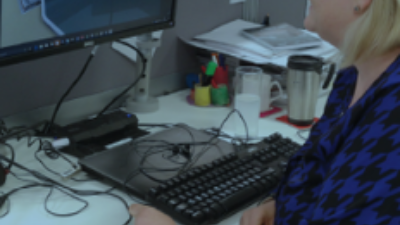
Why International Women’s Day matters for LGBT people
8 March marks International Women's Day – ‘a global day celebrating the social, economic, cultural and political achievements of women’.
It has a clear purpose: to promote ‘unity, celebration, reflection, advocacy and action’.
Of course, we need more than just one day to celebrate all that women bring to the world, but the focus provided by International Women’s Day means we can draw attention to the inequalities faced by lesbians, bi women and trans (LBT+) people. We can use this day to not only acknowledge their many achievements, but to galvanise the momentum needed to ensure the LGBT movement – and society as a whole – grows more inclusive.
International Women's Day is an opportunity to hear from lesbians, bi women and trans people who have historically been silenced.
For us at Stonewall, International Women's Day is an opportunity to hear from lesbians, bi women and trans people who have historically been silenced. When we use our voices to highlight these injustices, and in particular, when we do so alongside our trans siblings, we empower one another. Working together, we can celebrate all of our identities and tackle the discrimination that affects each of us.
In Britain, people who identify as LBT+ disproportionately experience anxiety – 72 per cent of bi women and 60 per cent of lesbians experienced anxiety in the last year, compared with 56 per cent of bi men and 53 per cent of gay men. Trans people and lesbians in Britain are also more likely to report unequal treatment and lack of understanding by healthcare staff. Even in LGBT spaces, women are often excluded. 33 per cent of lesbians and 43 per cent of bi women in the UK say they ‘never attend LGBT-specific venues and events in [the] local community.’
The specific dangers faced by LBT+ communities can also be seen on a global scale. The Trans Murder Monitoring project recorded 2,982 murders of trans and gender-diverse people worldwide between 1 January and 30 September 2018 – with trans women of colour facing vastly disproportionate levels of violence.
Lesbians, bi women and trans people exist in a world that discriminates against us because of who we are and who we love.
Lesbians, bi women and trans people exist in a world that discriminates against us because of who we are and who we love. Plus, the combination of our gender identities and our sexual orientations means we often find ourselves at odds with the typical expectations around what it looks like or means to be ‘a woman’. Whether you’re a butch lesbian, a feminine bi woman with a boyfriend, or a trans person who changes how they express themselves day to day, we’re all at a higher risk of prejudice and harassment – no matter how we identify.
Because of this, we firmly believe that working for gender parity goes hand in hand with our fight for acceptance without exception for LGBT people. This International Women’s Day, we want to highlight the work of lesbian, bi women, and trans activists worldwide through our #OutOfTheMargins project.
Out of the Margins aims to address the specific needs, experiences and human rights violations of LBT+ people across the world. Since 2018, the project has brought together a global network of organisations working to advance and promote equal rights for LBT+ communities, using groundbreaking research and advocacy. Together, we’re fighting for a world where lesbians, bi women and trans people are fully included in their societies, and finally brought Out of the Margins.
We know that there is, and always has been, more that unites us than divides us.
We know that there is, and always has been, more that unites us than divides us. But only when we acknowledge the shared nature of our struggles can we work together to create a world where everyone is safe, supported, and free to be themselves. On this International Women’s Day, we urge our communities to come together in solidarity and begin taking the steps needed to make this a reality.


